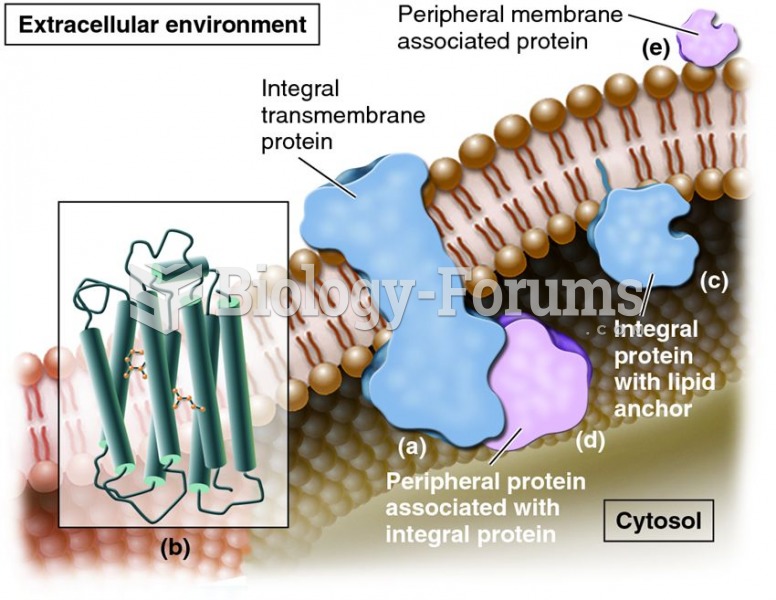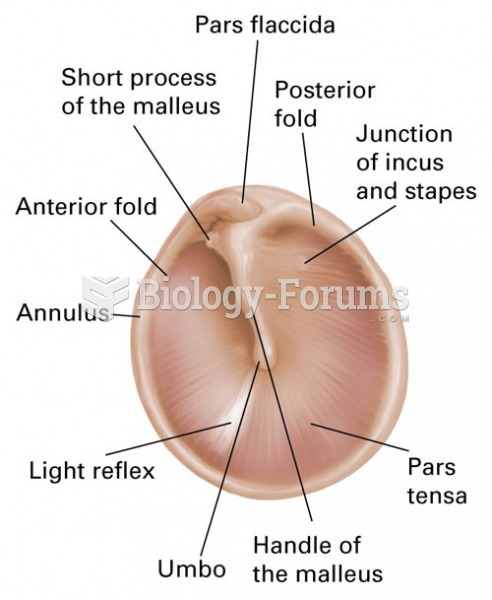|
|
|
The first-known contraceptive was crocodile dung, used in Egypt in 2000 BC. Condoms were also reportedly used, made of animal bladders or intestines.
Hip fractures are the most serious consequences of osteoporosis. The incidence of hip fractures increases with each decade among patients in their 60s to patients in their 90s for both women and men of all populations. Men and women older than 80 years of age show the highest incidence of hip fractures.
GI conditions that will keep you out of the U.S. armed services include ulcers, varices, fistulas, esophagitis, gastritis, congenital abnormalities, inflammatory bowel disease, enteritis, colitis, proctitis, duodenal diverticula, malabsorption syndromes, hepatitis, cirrhosis, cysts, abscesses, pancreatitis, polyps, certain hemorrhoids, splenomegaly, hernias, recent abdominal surgery, GI bypass or stomach stapling, and artificial GI openings.
In 2010, opiate painkllers, such as morphine, OxyContin®, and Vicodin®, were tied to almost 60% of drug overdose deaths.
On average, the stomach produces 2 L of hydrochloric acid per day.
 Vertebral compression Fractures of the spine (vertebra) can cause severe ”band-like” pain that radia
Vertebral compression Fractures of the spine (vertebra) can cause severe ”band-like” pain that radia
 In 2008, the U.S. economy suffered a gaping wound as several trillion dollars were ripped out of it.
In 2008, the U.S. economy suffered a gaping wound as several trillion dollars were ripped out of it.





